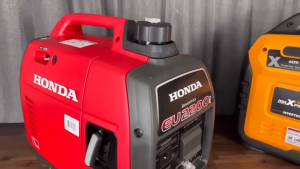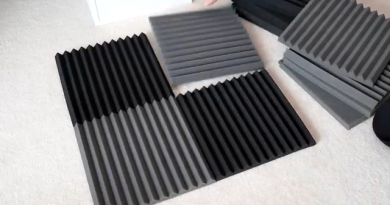How To Make A Generator Quieter
Alright, let’s talk generators – the trusty lifesavers when the lights go out or when you’re out in the wild, seeking adventure. But, here’s the catch: they can be loud as heck! No worries, though, ’cause we’ve got your back with some practical tips to hush those power beasts.
Say hello to a more peaceful power experience as we walk you through effective ways to make your portable generator quieter, whether you’re chilling at home or venturing into the great outdoors. And guess what? With crazy weather patterns these days, a quieter generator can be a game-changer for a comfier ride.

Get ready to turn down the volume and crank up the peace. Join us as we spill the beans on the secrets to a generator that purrs like a contented cat, minus the annoying roar. It’s time to enjoy some tranquility while keeping the lights on!
Generators – Your Electricity Wizards!
A generator is a device that converts mechanical energy into electrical energy. It works on the principle of electromagnetic induction. When the generator’s mechanical system (such as an engine or a turbine) is powered and rotates, it causes a magnetic field to move around a coil of wire, which induces an electrical current in the wire.
Generators play a crucial role in providing electricity in various situations. They are widely used during power outages as backup power sources for homes, businesses, and essential services to ensure continuous electricity supply. Portable generators are commonly used for camping, outdoor events, and in remote locations where access to the power grid is limited.
In addition to traditional power generation, generators are also used in renewable energy systems like wind turbines and hydroelectric plants to convert mechanical energy from the wind or flowing water into electricity.
Overall, generators are indispensable devices that help meet our electrical power needs in various settings, providing convenience, reliability, and accessibility to electricity whenever and wherever required.
The Clatter Behind the Buzz: Unraveling Why Generators Are Noisy
Generators, those dependable powerhouses that come to our rescue during power outages and camping trips, are indeed marvels of engineering. But, there’s no denying that their sometimes raucous noise can be a bit of a bother. So, let’s dive into the world of generator acoustics and explore the reasons behind their not-so-mellow tunes.
Size Matters
One of the primary reasons for the noise disparity lies in the engine size. Generators often rely on small engines to keep them portable and efficient. However, these compact engines tend to generate more noise compared to larger automotive engines. The smaller size means they have less mass and, as a result, exhibit more vibration, which amplifies the noise level.
Air-Cooling vs. Liquid-Cooling
Here’s another vital aspect contributing to the decibel showdown. Many generators employ air-cooling mechanisms to regulate engine temperatures, while automotive engines boast sophisticated liquid cooling systems. Air-cooling tends to be more straightforward and lighter, making it a popular choice for generators. However, this simplicity comes at the cost of increased noise, as air-cooled engines generate more sound during operation.
Thinner Materials
To achieve portability and efficiency, generators are often crafted with lighter, thinner materials. While this aids in reducing weight, it also means that the structure may resonate and transmit vibrations more readily, further contributing to the overall noise production.
Ways to Reduce Generator Noise
- Build a Generator Quiet Enclosure: Constructing a soundproof box for your generator is one of the most effective ways to reduce noise. Ensure there are no air gaps and use materials like medium density fiberboard and mass loading vinyl to create an effective enclosure.
- Use a Zombie Box Portable Soundproof Enclosure: Consider investing in a zombie box, a portable, weatherproof, and collapsible soundproof enclosure specifically designed for generators. It claims to reduce generator noise by up to 99%.
- Muffle Noise with a Plywood Board: Placing a plywood board between your generator and the surrounding area can help dampen the sound and direct it away from your living space.
- Avoid Using an Automobile Muffler: Contrary to some claims, using a car muffler as a silencer for your generator may not be as effective as expected. The majority of generator noise comes from the motor and moving parts, not the exhaust.
- Adjust Generator Location: Position the generator away from your living area and point the exhaust away from your home. The farther the generator is from you, the less noticeable the noise will be.
- Utilize a Storage Shed: If possible, place the generator in a well-ventilated storage shed. To minimize noise echo, add acoustic panels to the shed’s interior walls and ceiling.
- Use Sound-Absorbing Mat: Place your generator on a thick sound-absorbing mat to reduce vibrations and lower noise levels.
- Replace Faulty Muffler: If your generator’s muffler is damaged or faulty, consider replacing it with a new one for quieter operation.
- Invest in an Inverter Generator: If noise is a primary concern, consider purchasing an inverter generator. These types of generators are generally quieter than traditional portable generators.
By understanding the reasons behind generator noise and employing these noise-reduction techniques, you can enjoy the convenience and reliability of your power source without sacrificing peace and tranquility. So, embrace the clatter, take action, and revel in the newfound harmony with your trusty generator!
Tips and Tricks Mastering the Generator Game
Here are some additional tips and tricks related to generators:
- Fuel Efficiency: To maximize your generator’s runtime and save on fuel costs, consider investing in a model with an energy-efficient engine. Regularly maintain the generator, including cleaning the air filter and spark plug, as well as using high-quality fuel to optimize its fuel efficiency.
- Load Management: Be mindful of the electrical load you put on your generator. Running it at or near its maximum capacity for an extended period can strain the engine and reduce its lifespan. Prioritize essential appliances and devices, and avoid overloading the generator.
- Cold Weather Prep: If you’re using a generator in cold weather, take extra precautions to ensure it starts reliably. Keep the fuel tank full to prevent condensation, and use a block heater or insulation blanket to maintain proper operating temperature.
- Battery Maintenance: If your generator includes an electric starter, regularly check and maintain the battery to ensure it’s charged and ready to start the engine when needed.
- Store with Care: When not in use, store your generator in a clean and dry area, preferably in a sheltered space. If storing for an extended period, use a fuel stabilizer to prevent fuel degradation and clogging of the carburetor.
- Regular Inspection: Perform routine inspections of your generator, checking for any signs of wear, loose connections, or leaks. Promptly address any issues to keep your generator running smoothly.
- Noise Regulations: If you’re using a generator in a residential area or campground, be mindful of local noise regulations and consider using noise-reducing techniques to be a considerate neighbor.
- Safety First: Always follow safety guidelines provided by the manufacturer. Keep the generator outdoors in a well-ventilated area to prevent carbon monoxide buildup. Ensure proper grounding and avoid operating it in wet conditions.
- Clean Air Intake and Exhaust: Keep the air intake and exhaust ports free from debris and obstructions to maintain optimal engine performance and prevent overheating.
- Know Your Generator’s Limits: Familiarize yourself with the rated capacity and limitations of your generator. Avoid plugging in high-power appliances that exceed the generator’s capacity, as it can lead to equipment damage or failure.
By incorporating these tips and tricks into your generator usage and maintenance routine, you’ll not only extend the life of your generator but also ensure a smoother and more reliable power experience when you need it most. So, unleash the power of your generator and make it a true electricity wizard in your arsenal!
Video: 8 BEST Ways To Make a Noisy Generator QUIETER!
Conclusion
By following all these advises, you can significantly reduce the noise levels of your portable generator, making it more suitable for home use and camping. It is essential to choose the most appropriate method based on your needs and budget. For those seeking a new generator, inverter generators are the quietest option on the market.



